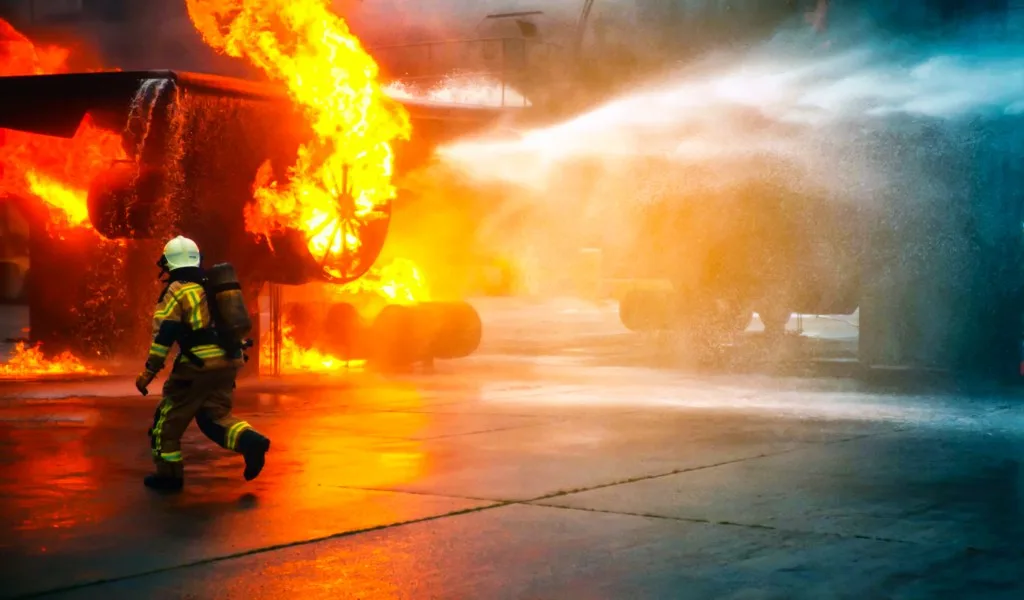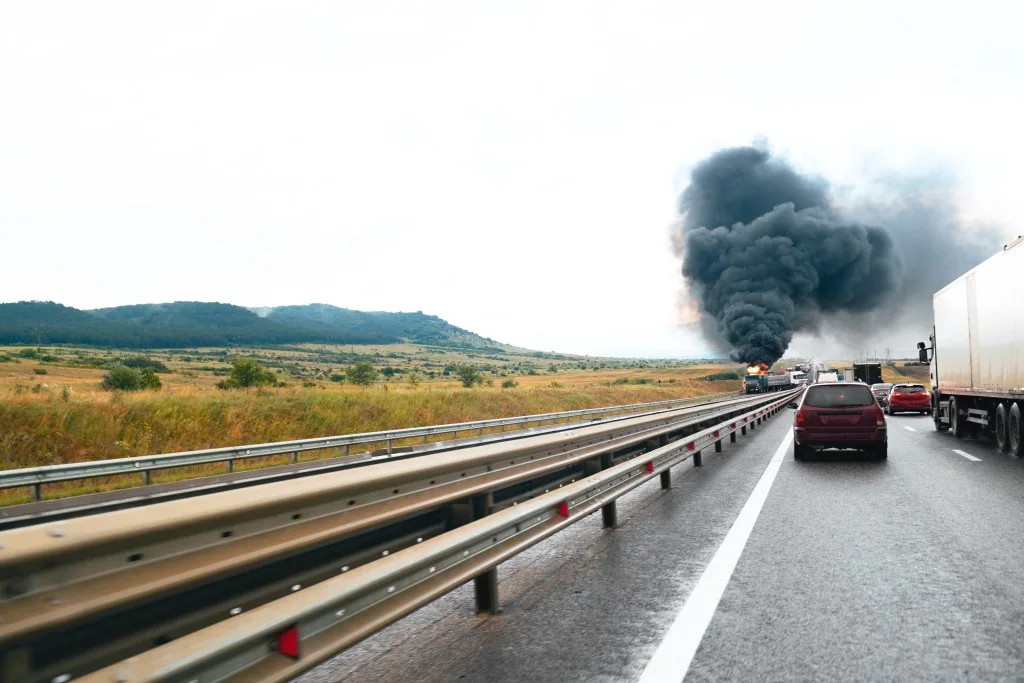Propane is, without a doubt, one of the keys to a comfortable RV life. This humble fuel is often the fuel for RV refrigerators and furnaces, in addition to more common uses like stoves and grills.
But with a flammable, pressurized substance strapped to or inside your rig, some may be concerned about the potential for an explosion.
While these events are rare, it’s helpful to know what can cause them to know what not to do. So let’s take a closer look.
What Happens If a Propane Tank Explodes?
In short, nothing you want to experience firsthand! In some cases, a true explosion could lead to a harmful or potentially deadly concussive force and the spread of metal shrapnel from the tank. Explosions could also cause fires in your RV, home, or nearby trees or other landscaping.
Other incidents could simply result in explosive depressurization of the propane tank. That will release gas into the surrounding area and may result in shrapnel.
Why Do Propane Tanks Explode?
It’s important to note that propane tanks rarely explode in the way many people think. In many cases, things perceived or reported as propane explosions actually result from a leak in the tank or hoses transporting the fuel. That fills an enclosed space and is ignited by a spark.
The other common type of propane explosion is known as a BLEVE, which stands for boiling liquid expanding vapor explosion. In a BLEVE, a pressurized liquid heats up to a temperature above its boiling point. That causes the tank to fail and rupture.
This rapid, violent decompression creates the explosion. Propane tanks are at risk of BLEVEs in any situation with exposure to sustained, direct heat.
Pro Tip: Beware of these 5 Ways Your Camper Can Catch on Fire.

How Likely Is It for Propane Tanks to Explode?
As we’ve mentioned, propane tank explosions are generally very uncommon. In fact, they’re rare enough that there are no detailed statistics. By some estimates, propane fires and explosions occurred as much as 600 times per year in the early 2000s.
However, new safety technology has helped reduce these numbers further. Essentially, they’re so uncommon that they shouldn’t be a significant worry or risk compared to things most people do every day without a second thought, like driving.
Will Propane Tank Explode in Sun?
Simply leaving a propane tank out in the sun won’t result in an explosion in most cases. Still, it can raise the risk of an explosive event, particularly the abovementioned BLEVEs.
Letting a tank sit in the sun for extended periods will raise the temperature significantly, putting additional pressure on the tank. If possible, you should store your tank in the shade to avoid any sun-related issues.
How Do You Stop a Propane Tank From Exploding?
Truly, most people don’t need to do much to keep a propane tank from exploding as long as they’re using it under normal conditions with some basic common sense. This means keeping them away from open flames, avoiding puncturing them, and taking care of valves and hoses.
Most propane tanks are designed to be used by ordinary people with no special skills and are as foolproof as possible.

How to Avoid an RV Propane Explosion
Make sure to keep these critical tips in mind to prevent a potentially dangerous accident.
Keep the Container Upright
This is critical because it allows the propane tank’s built-in anti-explosion features to work as intended. Every modern propane tank includes pressure relief valves that release gas from the tank in a controlled manner to avoid explosions.
However, these rely on the principle of gas moving upward to escape, which it won’t be able to do if the tank is on its side or upside down. Keeping your container upright will go a long way toward preventing potentially explosive issues.
Make Sure the Valve Is Closed When Not in Use
Closing the valve at the tank helps ensure you don’t have to worry about leaks from multiple parts of your system – from your regulator to a stove burner.
Doing this fully seals the propane inside the tank. That allows the tank’s relatively strong anti-leak and anti-explosion features to work as intended. It’s extra peace of mind from a few turns of your wrist.
Regularly Check for Leaks
Checking for leaks is a simple, quick process that, when done regularly, should help avoid most RV propane explosions. To do it, apply soapy water to the connection between the tank and regulator or any other valves or connections you want to test.
If there’s a leak, you’ll see bubbles begin to form. You can also do a quick check for leaks with your nose. If you smell the trademark “rotten egg” smell of propane, you can be sure you have a leak or other potential issue you should address as soon as possible.
Replace if Rusted or Leaks
Part of the reason propane explosions are relatively rare is that replacement tanks and components are relatively inexpensive. Users can easily swap out tanks at hardware, outdoors, or RV-specific stores, which you should do if you find any leaks or rust.
Rust can lead to the degradation of critical parts of the tank, and the reason for replacing leaking tanks should be evident by now. Regularly swapping out your tank for a new, perfectly functioning one is an easy maintenance step that can help avoid explosions.
Pro Tip: We uncovered if keeping your refrigerator on while driving your RV is dangerous and can cause a fire.

Should You Cover a Propane Tank?
While not essential, RVers should cover their propane tanks if they’re exposed while traveling. Think about all the dirt, rocks, and other debris flying around on the road. All of this could potentially damage the sensitive valve or, worse, the tank itself.
RV propane tank covers are available in various price points and in both hard-shell and soft versions. For a modest extra cost, you may find you can extend the life of your tanks. You’ll also worry a bit less while in transit.
Where Is the Safest Place to Store a Propane Tank?
When not in use, safely storing your propane tank is an easy way to nearly eliminate many explosion risks. You should keep your tank outdoors in a shaded, well-ventilated area. For storage for more than a short time, you should use your propane tank cover if you have one.
No matter where you store your propane tank, it’s vital to use common sense and remember the simple tips discussed above. While propane tank explosions are rare, they can be serious and even deadly. So take the time and care to ensure they don’t happen to you.
Discover the Best Free Camping Across the USA
To be honest with you, we hate paying for camping. There are so many free campsites in America (with complete privacy).
You should give it a try!
As a matter of fact, these free campsites are yours. Every time you pay federal taxes, you’re contributing to these lands.
Become a FREE CAMPING INSIDER and join the 100,000 campers that love to score the best site!
We’ll send you the 50 Best Free Campsites in the USA (one per state). Access the list by submitting your email below: